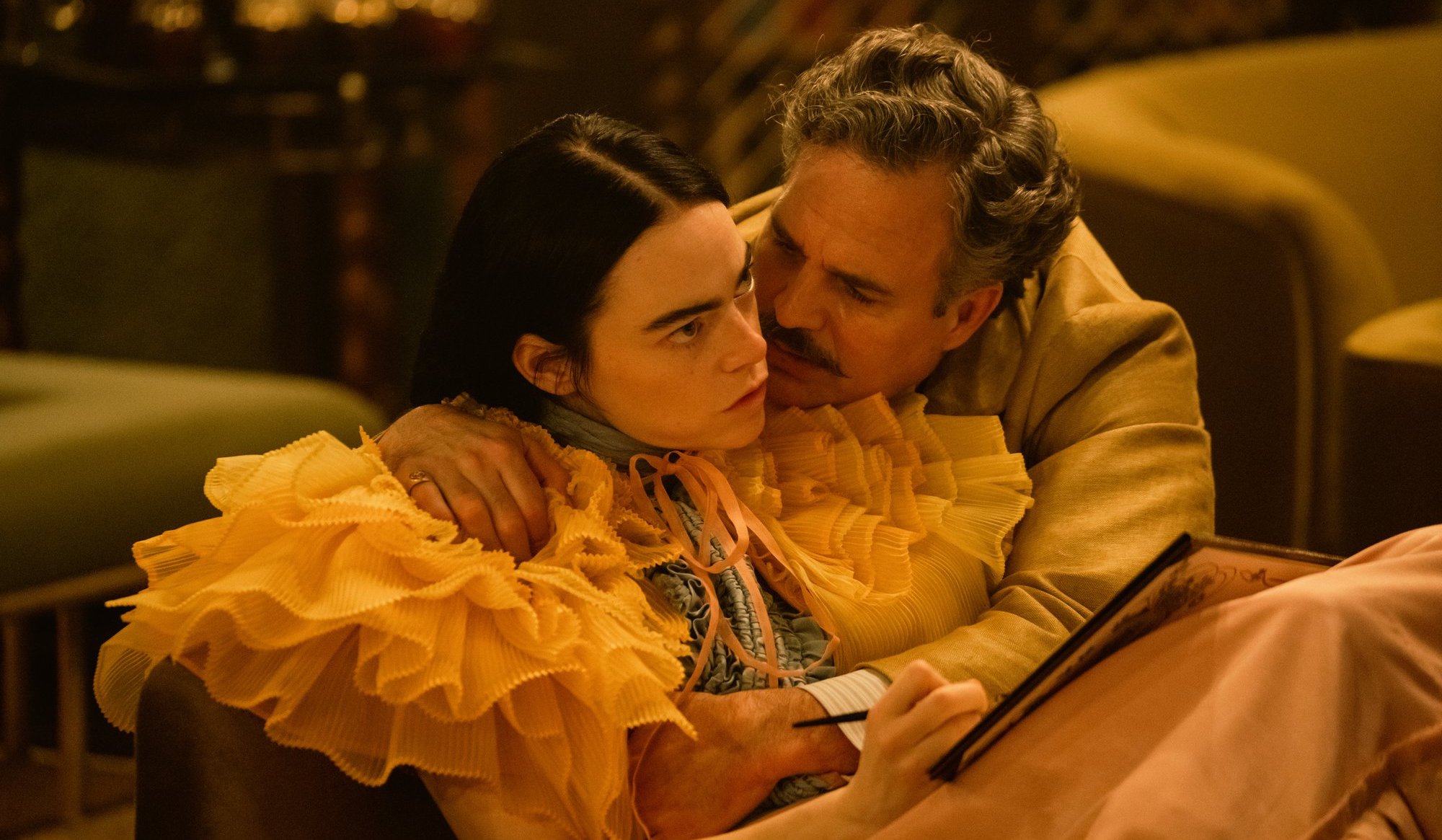The Antisocial Network: Memes to Mayhem Resurrects the Rot of Millennial Online Culture
It’s clear that meme culture has strangely seeped into the real world over the past decade, and boy, are we still facing its consequences today. How did the culture stir from wholesome trolling like getting Rickrolled to the catastrophic spiral into the Jan. 6 insurrection? The latest Netflix doc, The Antisocial Network: Memes to Mayhem, […] The post The Antisocial Network: Memes to Mayhem Resurrects the Rot of Millennial Online Culture appeared first on Den of Geek.

It’s clear that meme culture has strangely seeped into the real world over the past decade, and boy, are we still facing its consequences today. How did the culture stir from wholesome trolling like getting Rickrolled to the catastrophic spiral into the Jan. 6 insurrection? The latest Netflix doc, The Antisocial Network: Memes to Mayhem, sees co-directors Giorgio Angelini and Arthur Jones of Feels Good Man—the Pepe the Frog doc— draw the timeline and try to pinpoint the moment(s) when the Agent Smiths of the far right took control of the Matrix and seeped into our daily lives. Yet their approach looks too wistfully toward the early internet days of meme culture, detracting the doc from striking any actual meaning.
Building upon the narrative of the team’s previous meme-centric project, Memes to Mayhem plays as a spiritual sequel—or supplement—as it traces the thesis back to 4chan while wearing heavy nostalgia goggles. Talking head millennial interviewees instantly paint the portrait of the early internet days with tidbits of their harmless adolescent schemes, from one charging an AOL account to his parent’s check card so he can use the internet, but then canceling the subscription an hour before they get home, to a girl getting punished for a week (lol, white privilege) after being caught looking up “sex.com” on her parents’ computer. Out of the places they surfed the web to, it was 4chan that became a virtual home away from home for many a young millennial.
For the generation raised on iPads and never having to endure the era of dial-up modems, 4chan, developed by Christopher’ Moot’ Poole, played a pivotal role. Originally intended as a Westernized version of the Japan-based site 2chan, a platform for anime enthusiasts to discuss various topics anonymously, 4chan soon became the blueprint for meme culture, spawning numerous internet trends and activist movements.
Even for a critic who spends significant time online, I was unaware of many of these movements and trends. One instance was how users “raided” the browser game Habbo Hotel because they took umbrage that moderators were banning users from using dark-skinned avatars. It was a movement that had good intentions in fighting racism that ultimately became a moral stalemate once those same users had their Black avatars block digital swimming pools and form a swastika with the message “pool is closed due to [AIDS].” It was possibly the most mid-2000s sense of humor imaginable; people were both progressive and offensive simultaneously, with one hacker, Kirtaner, remarking, “Yeah, I know we were dumb kids.” Yet that was the case in 4chan’s early days, when the pranks and raids ranged from playful to stupid to harmless, to cringe and outdated.
However, the film points out that Habbo was the first example where what started as a joke online became a reality for white people who did everything they were doing online but in the real world, at pools and meetup spots while sporting afro wigs and suits. It was like the Gentleminion’s trend without innocence.
The Antisocial Network: From Memes to Mayhem is now playing on Netflix.
The overarching direction this is going becomes clear once the activist group Anonymous takes centerstage. After being banned by Moot for the “pools closed” spectacle spreading to the real world, disgruntled users formed a private group called Anonymous, proclaiming their resistance to the law.
While Anonymous wasn’t necessarily the first digital activist, and the film certainly is too breezy to discuss the evolution, it’s hard not to fist bump over the successful moments when their raids did some real good. The primary example, and the film’s most cathartically triumphant scene, is of Anonymous users pranking and then hacking former radio host and supremacist Hal Turner and landing him in jail.
As many conventional docs regarding the internet go, the same ol’ beat describes the heroic rise in global bandwidth. Yet it addresses that the group needed a real identity, direction, and guidance. Many users were in it for the earnestness. In contrast, others were nihilists who were bored and willing to do whatever with a shrug. It’s as if one morality camp was a Morty and the other was a Rick—while all wearing the same Guy Fawkes.
It’s an intriguing angle the movie zeroes in on for a brief moment.
It has the tone of researching what went wrong and how did it all go wrong, and while various answers come up in talking about topics like the failure of Occupy Wall Street, and the rise of incels through Gamergate occurring in such proximity to each other, the movie only acknowledges these events without presenting a clear meaning it adds to its conversation.
The directors manage to include the heads of co-opted suitable spaces like 8chan’s owner Fredrick Brennan, who made his site the 4chan alternative to combat Moot’s banning of users discussing Gamergate. Yet his site became the ground floor for abhorrent hate, although you see only a hint of remorse and a sense of hindsight from the owner.
There are countless reasons why 4chan played a factor in spurring on the alt-right. Yet the doc plays it so safe on the topic that you feel as if it’s scared of discussing any sub-areas like the growth of misinformation during the 2010s, because it might seem as if it’s off-topic when it’s 100 percent on. There is a barrage of different cases within the film that each could have been a 40-minute episode worth of material in of itself. You also sense they are omitting a bunch of other cultural aspects that 4chan played a part in.
While it features a cathartic gung ho climax that discusses The Insurrection in a roundabout way, with old-Anonymous users getting back at the alt-right participants on Jan. 6, you wish there was more of a monumental buildup toward that moment rather than the loose compilation of images. You must look elsewhere to go further into those conversations, like more focused Feels Good Man or Max’s The Truth vs. Alex Jones.
Despite it all, Memes to Mayhem is an intriguing, passable doc with some insight into the moments of internet history that got coerced into mayhem. Just don’t log in thinking you’ll get a clear answer as to why we’re all a little mad here on the internet, because the nostalgia goggles worn by its featured millennial talking heads bear heavy prescriptions.
The post The Antisocial Network: Memes to Mayhem Resurrects the Rot of Millennial Online Culture appeared first on Den of Geek.
What's Your Reaction?





















































